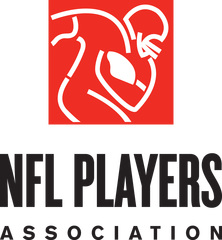Related Research Articles

The Women's National Basketball Association (WNBA) is a women's professional basketball league composed of 12 teams, all based in the United States. The league was founded on April 22, 1996, as the women's counterpart to the National Basketball Association (NBA), and league play started in 1997. The regular season is played from May to September, with the All Star game being played midway through the season in July and the WNBA Finals at the end of September until the beginning of October.
In professional sports, a salary cap is an agreement or rule that places a limit on the amount of money that a team can spend on players' salaries. It exists as a per-player limit or a total limit for the team's roster, or both. Several sports leagues have implemented salary caps, using them to keep overall costs down, and also to maintain a competitive balance by restricting richer clubs from entrenching dominance by signing many more top players than their rivals. Salary caps can be a major issue in negotiations between league management and players' unions because they limit players' and teams' ability to negotiate higher salaries even if a team is operating at significant profits, and have been the focal point of several strikes by players and lockouts by owners and administrators.

The National Football League Players Association, or NFLPA, is the labor union representing National Football League (NFL) players. The NFLPA, which has headquarters in Washington, D.C., is led by president Jalen Reeves-Maybin and executive director Lloyd Howell. Founded in 1956, the NFLPA is the second-oldest labor union of the four major North American professional sports leagues; it was established to provide players with formal representation to negotiate compensation and the terms of a collective bargaining agreement (CBA). The NFLPA is a member of the AFL–CIO, the largest federation of unions in the United States.
The Major League Baseball Players Association (MLBPA) is the labor union representing all current Major League Baseball players. All players, managers, coaches, and athletic trainers who hold or have held a signed contract with a Major League club are eligible for membership in the Association.
The WNBA draft is an annual draft held by the WNBA through which WNBA teams can select new players from a talent pool of college and professional women's basketball players. The first WNBA draft was held in 1997.
In professional sports, a replacement player is an athlete who is not a member of the league's players association and plays during a labor dispute such as a strike or lockout, serving as a strikebreaker.
The 1995–96 NBA season was the 50th season of the National Basketball Association (NBA), though the 50th anniversary was not celebrated until the following season. The Chicago Bulls defeated the Seattle SuperSonics 4 games to 2 in the NBA Finals to win their fourth championship.
The Bituminous coal strike of 1974 was a 28-day national coal strike in the United States led by the United Mine Workers of America. It is generally considered a successful strike by the union.
A collective agreement, collective labour agreement (CLA) or collective bargaining agreement (CBA) is a written contract negotiated through collective bargaining for employees by one or more trade unions with the management of a company that regulates the terms and conditions of employees at work. This includes regulating the wages, benefits, and duties of the employees and the duties and responsibilities of the employer or employers and often includes rules for a dispute resolution process.

The National Basketball Players Association (NBPA) is the labor union that represents National Basketball Association (NBA) players. It was founded in 1954, making it the oldest trade union of the four major professional sports leagues in the United States and Canada. However, the NBPA did not get recognition by NBA team owners until ten years later. Its offices are located in the historic Park and Tilford Building in New York City. It was briefly a trade association after dissolving as a union during the 2011 NBA lockout.
NLRB v. Mackay Radio & Telegraph Co., 304 U.S. 333 (1938), is a United States labor law case of the Supreme Court of the United States which held that workers who strike remain employees for the purposes of the National Labor Relations Act (NLRA). The Court granted the relief sought by the National Labor Relations Board, which sought to have the workers reinstated by the employer. However, the decision is much better known today for its obiter dicta in which the Court said that an employer may hire strikebreakers and is not bound to discharge any of them if or when the strike ends.
The NBA draft is a major annual event in which all the 30 franchises in the National Basketball Association select new players for their teams. Eligibility rules for prospective players have changed eight times during the history of the league. No player may sign with the NBA until they are 18 years or older.
The 1998–99 NBA lockout was the third lockout of four in the history of the National Basketball Association (NBA). It lasted from July 1, 1998, to January 20, 1999, and forced the 1998–99 regular season to be shortened to 50 games per team and that season's All-Star Game to be canceled. NBA owners reopened the league's collective bargaining agreement (CBA) in March 1998, seeking changes to the league's salary cap system and a ceiling on individual player salaries. The National Basketball Players Association (NBPA) opposed the owners' plans and wanted raises for players who earned the league's minimum salary. After the two sides failed to reach an agreement, the owners began the lockout.

The MLS Players Association (MLSPA) is the union of professional Major League Soccer players. The MLS Players Association serves as the exclusive collective bargaining agreements representative for all current players in MLS.

The commissioner of the NBA is the chief executive of the National Basketball Association (NBA). The current commissioner is Adam Silver, who succeeded David Stern on February 1, 2014.
The 2011 National Football League Player lockout was a work stoppage imposed by the owners of the NFL's 32 teams that lasted from March 12, 2011, to July 25, 2011. When the owners and the NFL players, represented by the National Football League Players Association, could not come to a consensus on a new collective bargaining agreement, the owners locked out the players from team facilities and shut down league operations. The major issues disputed were the salary cap, players' safety and health benefits, revenue sharing and television contracts, transparency of financial information, rookie salaries, season length, and free agency guidelines. During the 18-week, 4-day period, there was no free agency and training camp, and players were restricted from seeing team doctors, entering or working out at team facilities, or communicating with coaches. The end of the lockout coincided with the formation of a new collective bargaining agreement prior to the start of the 2011 regular season.
The NFL collective bargaining agreement (CBA) is a labor agreement which reflects the results of collective bargaining negotiations between the National Football League Players Association (NFLPA) and National Football League (NFL). The labor agreement classifies distribution of league revenues, sets health and safety standards and establishes benefits, including pensions and medical benefits, for all players in the NFL. The first collective bargaining agreement was reached in 1968 after player members of the NFLPA voted to go on strike to increase salaries, pensions and benefits for all players in the league. Later negotiations of the collective bargaining agreement called for injury grievances, a guaranteed percentage of revenues for players, an expansion of free agency and other issues impacting the business of the NFL. The NFLPA and team owners have negotiated seven different agreements since 1968.
The 1983 Todd Shipyard Strike was a strike action by 10,000 Pacific Coast Metal Trades Union members from July 26 to September 26, 1983, deadlocking business in 9 shipyards. The Todd Shipyards Corporation was significantly impacted by this strike. The bargaining between the unions under the Pacific Coast Metal Trades District Council, and the Pacific Shipbuilders Association led to a new contract, but that did not prevent Todd Shipyards from losing a significant amount of business and subsequent loss of workers in the years that followed.

The Women's National Basketball Players Association (WNBPA) is the players' union for the Women's National Basketball Association (WNBA). It formed in 1998 and was the first trade union for female professional athletes.
The 2024 MLS referee lockout is an ongoing labor dispute between the Professional Referee Organization (PRO), the organization responsible for assigning and managing referees and other match officials for Major League Soccer, and match officials represented by the Professional Soccer Referees Association (PSRA), a labor union for professional match officials in Canada and the United States.
References
- 1 2 "History". National Basketball Referees Association. Retrieved 2024-03-10.
- ↑ Associated Press. "NBA referees seeking sympathy", Staten Island Advance . April 11, 1977. 18.
- 1 2 Associated Press. "Referee strike won't hold back NBA playoffs", Staten Island Advance . April 11, 1977. 18.
- ↑ Goldaper, Sam. "Referees Strike N.B.A But Substitutes Step In", New York Times April 11, 1977.
- ↑ "Referees & NBA Put Talks on Hold", New York Post . October 25, 1983. 56.
- ↑ Young, Dick. "Young Ideas: Gossage's Griping Shouldn't Sink Billy", New York Post. October 25, 1983. 56.
- ↑ Barenfeld, Steve. "NBA Refs go Back to Work", New York Post. December 17, 1983. 34.
- ↑ "NBA NOTES - Referees Locked Out -- Union Rejected Deal", San Francisco Chronicle . September 30, 1995. B3.
- ↑ Fay, Bill. "HACKS - Locked-out referees are returning to work none too soon, because replacement officials have turned the NBA into the No-holds Barred Association", Tampa Tribune . December 6, 1995. 1.
- ↑ Brown, Clifton. "N.B.A. Referees Accept Contract", New York Times. December 5, 1995. B13.
- ↑ Berkman, Seth. "Missed Calls Prompt W.N.B.A. to Bolster Referees’ Training", New York Times. May 20, 2017.